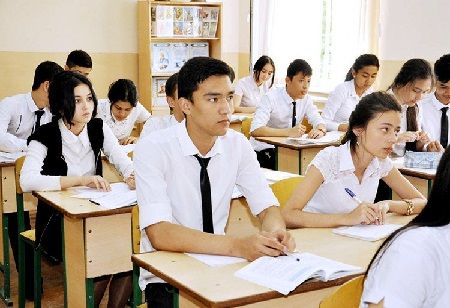- Enrollment in Uzbekistan’s state universities has halved since 2020, as young people cite poor education quality, lack of critical thinking, and rising costs.
- Private and foreign universities, along with online training centers, are gaining ground as state institutions suffer from teacher exodus and bureaucratic stagnation.
- Corruption, opaque subsidy distribution, and economic hardship are driving many especially young men to seek work abroad, while more women pursue university education.
Increasingly, fewer young Uzbeks are willing to study at national high schools, with their numbers decreasing by half over the past year alone. As Radio Ozodlik reports, 18-year-old Elbek has opted to emigrate to find employment, while others, like Aziza, straight after her final high school exams, think that 'it is pointless to study where critical thinking is not valued'.
Given the expense of education, despite the abolition of distance learning, state universities of Uzbekistan are gradually losing the market to private and foreign universities.
Elbek hails from Kasansaj city in the Namangan province and is prepared to travel to Russia in quest of employment, even after all the challenges experienced by Central Asian migrants in recent years, which he will have to endure from the point of arrival at the border.
Yet, his family's poor resources make it impossible for him to study at university. Aziza is from Tashkent and would have all the chance of being enrolled, but she does not trust the quality of Uzbekistan's state colleges' teaching and says that "I want to study in a more advanced and contemporary academic environment, improve my English, and then go to a foreign university".
Statistics attest to the distrust in state institutions, where enrollment finished on 26 June: whereas in 2020 there were 1,484,000 applications, in 2025 it dropped to 732,411, a record low for the past decade.
There has been a wholesale exodus of teachers themselves in recent years, industry expert Komil Džalilov says, who have been seeking better pay, more academic freedom, and fewer bureaucrats in the private sector.
As he states, there are 100 private higher learning institutions within the nation in contrast to 201 state institutions, with numerous foreign colleges that are much more appealing, considering the fact that state higher education has no prospects of improving.
And if quality continues to be poor, the prices go up, with admission to state institutions being around 10-15 million som (800-1,200 dollars) and higher. Overseas branches are even higher, the entrance exam alone costing 187,500 som, aside from the few groups that have some subsidies available to them.
Also Read: CHED, PhilHealth Team Up to Provide Healthcare for Poor Students
The study contract has to be paid yearly, and poor families are becoming more numerous, as there is no indication of development in the economy of Uzbekistan, in spite of state propaganda's upbeat reports.
Subsidies represent another and very disputable problem, since they are distributed mainly to the military and police officers' families and other state institutions. Special attention is also given to the winners of the state competitions 'Zulfja' and 'Mard uglon' for the 'most talented' girls and boys in the nation, with quite questionable selection criteria, as well as different national and international 'student Olympics', young individuals with foreign language proficiency or physical or mental impairment, creating many questions regarding the selection process, not to mention because of high levels of corruption and non-transparency of the exams.
With the shutting down of distance learning, online courses and certain professional training centres are becoming more popular, drawing individuals to potential work without expecting higher education, which does not provide secure employment. Young men are primarily those in search of work for immediate pay, while female students studying at universities are increasingly the percentage.

